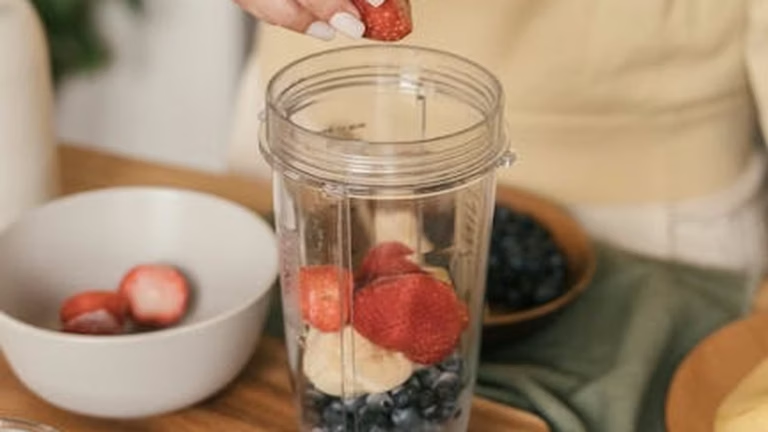November Immunity Boost: Top 5 Foods to Fight Off Seasonal Illnesses
November is a beautiful month, filled with crisp air, colorful leaves, and the anticipation of the holiday season. However, it also marks the beginning of cold and flu season. As temperatures drop, we spend more time indoors, creating the perfect breeding ground for viruses and bacteria. But don’t despair! You can proactively strengthen your defenses with a powerful weapon: food. A healthy diet rich in specific nutrients is a fantastic way to boost immune system function and ward off those pesky seasonal illnesses. This November, arm yourself with knowledge and delicious, nutrient-packed foods to stay healthy and vibrant.
Why Focus on Immunity in November?
The transition from fall to winter often brings a dip in our immune defenses. Several factors contribute to this:
- Lower Vitamin D Levels: Sunlight exposure decreases, leading to lower vitamin D production, which is crucial for immune function.
- Increased Indoor Time: We spend more time indoors in close proximity to others, increasing the risk of exposure to germs.
- Dry Air: Dry air can irritate nasal passages, making them more susceptible to viral infections.
- Holiday Stress: The stress associated with the holidays can weaken the immune system.
Therefore, focusing on an immunity boost in November is a smart strategy to prepare your body for the challenges ahead. By incorporating specific foods for immunity into your diet, you can significantly improve your ability to fight off infections.
Top 5 Foods for a November Immunity Boost
Here are the top 5 foods to include in your diet this November to strengthen your immune system and help you stay healthy throughout the season. This list focuses on readily available and delicious November immunity foods.
1. Citrus Fruits: Vitamin C Powerhouses
Citrus fruits like oranges, grapefruits, lemons, and limes are packed with vitamin C, a powerful antioxidant known for its immune boosting diet properties. Vitamin C helps to stimulate the production of white blood cells, which are essential for fighting off infections.
Scientific Fact: Studies have shown that vitamin C can reduce the duration and severity of colds, although it may not prevent them entirely. A meta-analysis published in the Cochrane Database of Systematic Reviews found that regular vitamin C supplementation had a modest but consistent effect in reducing the duration of cold symptoms.
Practical Tip: Start your day with a glass of freshly squeezed orange juice or add lemon slices to your water throughout the day. Incorporate grapefruit segments into your salads or enjoy a clementine as a healthy snack.
2. Ginger: Anti-Inflammatory Champion
Ginger is a potent anti-inflammatory and antioxidant spice that has been used for centuries for its medicinal properties. It contains compounds like gingerol, which have powerful anti-inflammatory and antioxidant effects. Ginger can help to soothe sore throats, reduce nausea, and boost immune system function.
Case Study: A study published in the Journal of Ethnopharmacology found that ginger extract inhibited the growth of several respiratory viruses in vitro, suggesting its potential as a natural antiviral agent.
Practical Tip: Add freshly grated ginger to your soups, stews, and stir-fries. Brew ginger tea by steeping sliced ginger in hot water. You can also find ginger supplements in capsule or powder form.
3. Garlic: Nature’s Antibiotic
Garlic is another culinary staple with impressive immune-boosting properties. It contains allicin, a compound that has potent antibacterial, antiviral, and antifungal effects. Allicin helps to stimulate the immune system and fight off infections.
Health Statistic: A study published in the journal Advances in Therapy found that participants who took a garlic supplement daily for 12 weeks had fewer colds and recovered faster than those who took a placebo.
Practical Tip: Add minced garlic to your pasta sauces, soups, and stir-fries. Roast whole garlic cloves in the oven for a sweeter, milder flavor. Consider taking a garlic supplement if you don’t enjoy the taste of raw garlic.
4. Yogurt: Probiotic Powerhouse
Yogurt, especially Greek yogurt, is a great source of probiotics, beneficial bacteria that live in your gut. These bacteria help to maintain a healthy gut microbiome, which is essential for boost immune system function. A healthy gut microbiome helps to fight off harmful bacteria and viruses.
Scientific Fact: Research has shown that probiotics can help to reduce the risk of respiratory infections, such as colds and flu. A review published in the British Journal of Nutrition found that probiotics were associated with a reduced risk of acute respiratory tract infections.
Practical Tip: Choose yogurt with live and active cultures. Add fruit, nuts, and seeds for a more nutritious and satisfying snack. Use yogurt as a base for smoothies or as a healthier alternative to sour cream.
5. Green Tea: Antioxidant Rich Beverage
Green tea is packed with antioxidants, including epigallocatechin gallate (EGCG), which has been shown to have potent antiviral and anti-inflammatory effects. EGCG helps to protect cells from damage and boost immune system function. Drinking green tea regularly can help to strengthen your defenses against seasonal illnesses.
Case Study: A study published in the Journal of the American College of Nutrition found that green tea extract supplementation was associated with a reduced incidence of influenza infection in healthcare workers.
Practical Tip: Drink a cup or two of green tea daily. Opt for loose-leaf green tea for the best flavor and antioxidant content. Add lemon or honey to enhance the flavor and provide additional immune-boosting benefits.
Beyond Food: Lifestyle Factors for Immunity
While diet is crucial for seasonal illness prevention, other lifestyle factors also play a significant role in maintaining a strong immune system. These include:
- Adequate Sleep: Aim for 7-8 hours of sleep per night.
- Regular Exercise: Engage in moderate-intensity exercise most days of the week.
- Stress Management: Practice relaxation techniques such as yoga, meditation, or deep breathing exercises.
- Hydration: Drink plenty of water throughout the day.
- Hand Hygiene: Wash your hands frequently with soap and water, especially after being in public places.
Conclusion: Embrace a Proactive Approach
This November, take a proactive approach to your health by incorporating these foods for immunity into your diet and adopting healthy lifestyle habits. By strengthening your immune system, you can reduce your risk of seasonal illness prevention and enjoy a healthy and vibrant season. Remember, even small changes can make a big difference in your overall well-being. So, embrace the power of food and make this November a season of health and vitality. Prioritize your immunity boost and enjoy all that the month has to offer!
References
-
Harvard T.H. Chan School of Public Health Nutrition Source
– Evidence-based nutrition guidance from Harvard researchers. -
Academy of Nutrition and Dietetics
– Professional nutrition resources and dietary guidelines. -
Centers for Disease Control and Prevention Nutrition
– Government nutrition recommendations and research.






